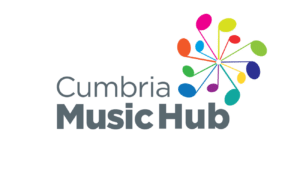Starting lessons
There's a lot to take on board when you start learning an instrument for the first time. So we've put together a list of some of the most important tips to get you started:
- Your first lesson - this is your first meeting with your new teacher so try to make a good impression. If you haven't already got your own instrument you'll be given all the information you need to get one. You may also be asked to get a music book or other things you need. It's really important that you take any letters home and hand them over straight away.
- Be organised - Your lesson will be on the same day each week, and from now on you need to remember your instrument, your music and your notebook every week. You might need to get your mum or dad to help, or try making your own reminder poster to hang on your bedroom door.
- Practice - The only way to get better is to play your new instrument at home. Your teacher will tell you how often they'd like you to practice and what you should play each week. There are some great practice tips below.
- Join a group - Playing an instrument is a great way of meeting new people, making new friends and developing new skills. So join your school band, or check out your local music centre - you'll find lots of different groups to join in our Play together section.
Moving up to Secondary
There's a lot to get used to when you move to your new school, and that includes a new routine for your music lessons. You'll probably have a new teacher and at most secondary schools you'll have your music lesson at a different time each week so you don't always miss the same school lesson. It might seem hard at first, but remember you'll soon settle in to the new routine.
- Be organised - Keep your timetable somewhere safe so you always know what time your lesson is each week, and get your music and instrument ready the night before
- Practice - It's hard fitting practice around homework, so it can be a good idea to have a regular practice time. Ask your teacher for tips on how to get the most out of your practice.
- Join a group - Playing an instrument is a great way of meeting new people, making new friends and developing new skills. Your new school will have a range of groups that meet at lunch time or after school so get involved as soon as you can.
Practice tips
(from www.dsokids.com) Every good musician knows that regular practice is a must, but did you know that careless practice can actually make you worse? Before you tell your parent or you teacher that you have decided not to practice, think about the WHO, WHAT, WHEN, WHERE and HOW of practice that will help you play better and enjoy music more.
Who?
YOU! Good practice involves your mind, your body, your emotions, and the music. Your parent or teacher may be able to force you to spend time playing the notes, but only YOU can focus your mind and your feeling on the sounds you are producing, so that the music you play is beautiful and expressive.What?
Practice that progresses toward perfection will include:- Warm-ups
- Review of scales, studies, or pieces you have already learned
- Your new assignment
- Something you really love playing, or just for fun (maybe even make up a piece on your own)
When?
Dr. Suzuki said, "Only on the days that you eat!" The best plan is to make practice a part of your daily routine. If you know you will practice at a certain time every day, it will happen with very few exceptions.How?
This is a VERY important question! Many students practice by playing straight through a piece or other assignment (often as quickly as possible) as if they were at a recital, then go on to the next thing, no matter what happened. Money won't buy better playing, but well spent practice time will. Here are some hints for getting the most for your practice "dollar".- Set goals to try to accomplish in each practice session
- Be sure you know what the passage should sound like
- Work on the most challenging spots first
- Break the music down into small sections (How do you eat an elephant? - One bite at a time!)
- Repeat the passage many times AFTER you get it right
- Before you end each practice session, play the entire piece, and enjoy!
Useful stuff online
Above all, learning to play an instrument should be fun! Try some of these online resource to add a bit of fun to your practice:- Classics for Kids
- Fun Stuff from musicteachers.co.uk
- Dallas Symphony Orchestra for kids
- Interactive music theory
- San Fransisco Symphony Music Lab
- Music games for girls
- the best musical advice, news, interviews and exclusive video from the Musicroom Blog
- KS3/4 resources from the BBC
- And if you still want more....
Useful stuff to download
- Edit your own sounds – Audacity
- Write your own music – Musescore
- Change the speed of your backing tracks - ABRSM Speedshifter
- Useful apps for your phone include tuner, metronome, garageband, ProChords, ear training
